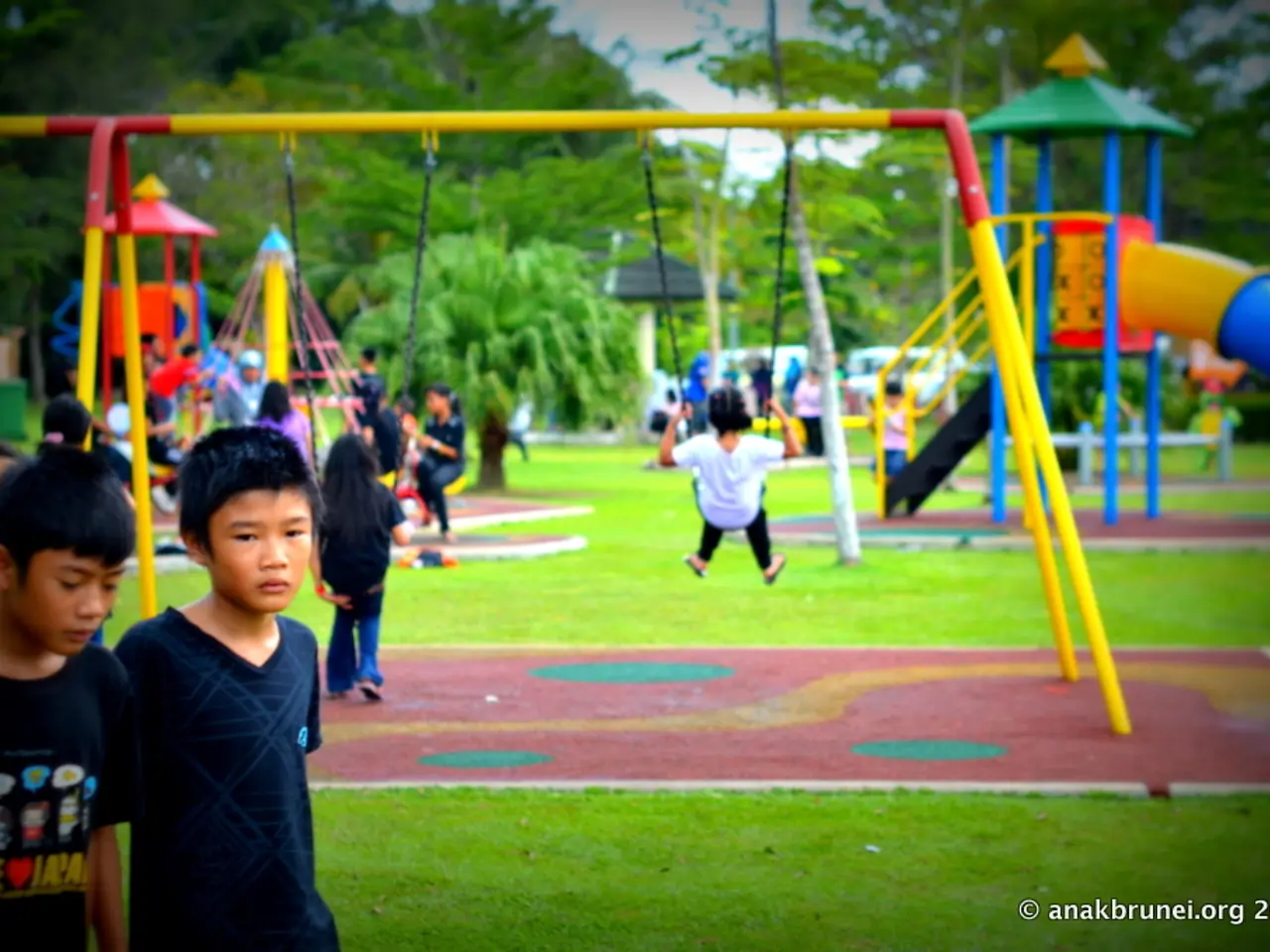Catchy Tunes for Toddler Entertainment
=====================================================================================================================
In the realm of early childhood education, action songs have proven to be a versatile and effective tool for nurturing various aspects of a child's development. From turning living rooms into dance floors during bad weather to engaging children in activities that boost their motor skills, cognitive development, and family connections, action songs offer a wealth of benefits.
Motor Skills
Action songs often involve activities like dancing, marching, or jumping, which enhance gross motor skills such as strength, coordination, and spatial awareness. These skills are crucial for everyday activities like running and climbing. Moreover, activities like finger plays or action songs that involve precise movements help develop fine motor skills, which are necessary for tasks like writing, drawing, and using utensils.
Cognitive Development
Action songs and rhythmic activities help introduce mathematical concepts such as counting, number sequences, and pattern recognition. This is achieved through songs that encourage clapping or movement to beats, teaching foundational concepts like "more," "less," and "equal." Repetitive, melodic songs also aid in language development by introducing new vocabulary and helping children understand sentence structure through rhyme and rhythm.
Family Connections
Participating in singing activities can improve bonding and attachment among children and their family members. Action songs can boost engagement not only among children but also between children and their family members, providing a shared enjoyable experience. Music activities, including action songs, offer a platform for emotional expression and regulation, enhancing mood and reducing anxiety, fostering a positive environment for family interactions.
Some popular action songs that remain timeless include water-themed rhymes like "The Wheels on the Bus" and gentle body part demonstrations in "Head, Shoulders, Knees and Toes." Classics like "I'm a Little Teapot" and "Teddy Bear, Teddy Bear" remain popular for their simple gestures.
Adapting these activities for children with different needs is straightforward. For instance, slowing down the tempo, adding visual aids, or modifying motions can cater to diverse abilities. Rotating leadership roles lets kids invent new motions to share, building confidence. Predictable patterns in songs like "One Little Finger" help build motor planning, while simplifying lyrics to focus on one skill per verse or creating seated versions for wheelchair users ensures inclusivity.
Evening routines can be made magical with twinkle songs and stretching exercises before bed, making bedtime an enjoyable experience for both children and parents. Incorporating heavy work movements for sensory needs, such as stomping during "The Ants Go Marching," and using digital platforms like YouTube or teletherapy apps for interactive versions with animated cues can further enhance the benefits of action songs.
In summary, action songs for preschoolers are a powerful tool for enhancing motor skills, advancing cognitive development, and strengthening family bonds. Embracing action songs as part of your child's learning journey can foster a love for music, movement, and learning that will last a lifetime.
[1] National Association for the Education of Young Children (NAEYC). (2018). Developmentally Appropriate Practice in Early Childhood Programs Serving Children from Birth through Age 8. Washington, DC: Author. [3] Sternberg, E. (1985). The Triarchic Mind: Mental Structures for Intelligence. Cambridge, MA: Harvard University Press. [4] Trevarthen, C., & Aitken, M. (2001). The Infant and its World: The Social Foundations of Mental Growth. Oxford, UK: Oxford University Press. [5] DeBellis, M. D., Kuchibhatla, V., & Hessl, D. (2002). Neurobiological Foundations of Language and Learning Disorders. New York, NY: Guilford Press.
Wisdom gained from early childhood education emphasizes the significance of action songs in fostering not only motor skills and cognitive development but also meaningful relationships within the family and community. Incorporating education-and-self-development resources with an emphasis on lifestyle adjustments, such as engaging in sports and maintaining an active lifestyle, can complement the wisdom derived from action songs, offering holistic benefits for a child's growth.
effectively integrated into various aspects of a child's life, action songs and sports can contribute to a well-rounded educational experience that promotes wisdom, strengthens relationships, and encourages a balanced lifestyle.




